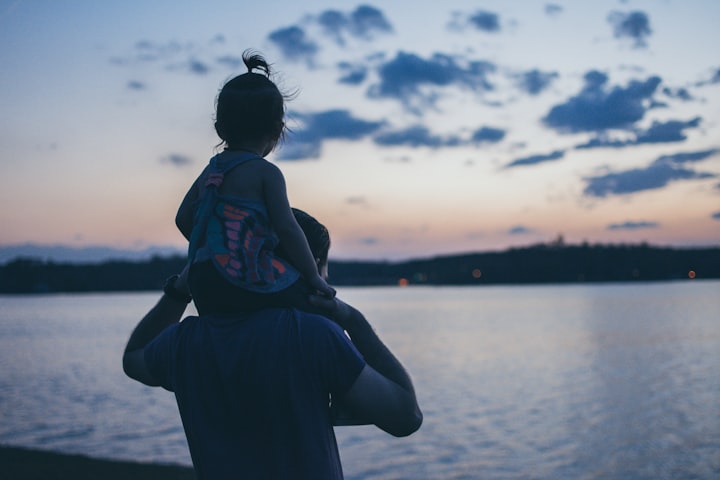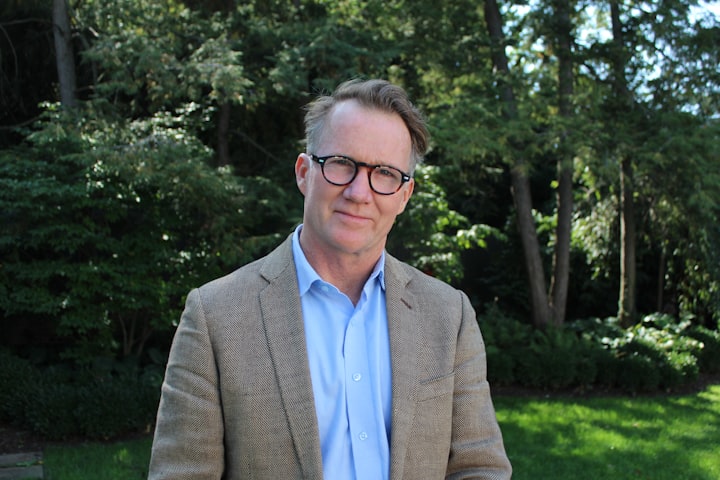
I never got on with my dad. Before he passed away, in his last few years, we bonded as much as two people could bond with 30 years of disagreement between them, but for the most part, a river of acrimony ran between us.
Ultimately we were two different people. I inherited my mother’s personality; loud, hyperactive, neurotic. He was quiet, brooding, a depressive. Our relationship was rocky from the outset.
He also drank. A lot. He was an alcoholic, a disease responsible for why he isn’t here today. That didn’t help. In fact, it was straight-up awful.
Early memories extend to him listening to Bob Dylan on the lounge stereo, socks idiosyncratically rolled down to his toes, small bowler hats balanced on the end of his feet, as he drank whisky and washed it down with 9% lager.
He was violent too. I’m 44 and still don’t like admitting that. But it doesn’t stop the fact that furniture got smashed, house phones got destroyed and my mother got hit far too frequently for it to be a lapse of judgement.
But forgiveness is all I have to give. He, on the other hand, handed me bitterness, anger, trauma, and blame. So much blame. He told me often the arguments were my fault. His mantra was everything was fine until I turned 3. Of course, he was drinking heavily and hitting my mother before I was born, but alcohol looks for excuses, it hunts down reasons for its own existence with a club and drags its prey back home to poke and prod and absolve itself of responsibility.
Now I am a dad, I can see how inappropriate it is to blame a 3-year-old for your problems. I also couldn’t imagine being regularly inebriated in front of my son. I don’t want him to ever have to pull my unconscious body out of an open fridge like I had to do for him.
So that’s the foundation. That’s him. My father. A fuck up. But therapy and self-help got me through and now I can talk about it detached and calmly, like a scientist looking at a petri dish.
Forgiveness. It’s all I have. It’s my only move. And therapy taught me that. Therapy also made me understand him. He wasn’t a monster, he was a victim.
Once, after a group therapy session for adults who had grown up in alcoholic families, I talked to a Scottish man about a story he had shared, and I expressed the anger I felt towards my father. He then said something that knocked me sideways. I had explained my granddad was an alcoholic too, as were his other sons, my uncles. On hearing this, the man said to me,
“You have to understand you’re angry because your father was an alcoholic but so was his. He didn’t stand a chance.”
Boom. Suddenly he wasn’t a perpetrator, he was a victim. A victim of circumstance, addictive genes, and family dysfunction. For the first time in my life, I related to him.
It flipped everything on its head. It was from there everything changed.
Self-help guru to millions, Tony Robbins, once said if you’re going to blame your parents for everything bad, you have to thank them for everything good too.
I didn’t understand those words for the longest time, but now I do. If he had that much influence on my life, I couldn’t legitimately pretend the good things about him had no impact on me either.
He had a gentle side. He was creative, a poet, an artist, and practical too, having both a plethora of manual labour jobs, as well as building our kitchen, fixing our cars, and constructing our garden sheds.
In his later years, when he became teetotal after endless doctors' warnings and hospital visits, he took up guitar and wrote heartfelt love songs and mellifluous folk tales. He was a frustrated artist stuck in a working-class life of dirt, grime, and drinking. At 15 he told his parents he wanted to go to art college but they refused his requests and sent him off to the nearest factory job, instead.
When my sister had children, they loved him. He was the warm and loving granddad who wrote them stories, just like he had written stories for my sister and me when we were young. I forget these things, it’s easy to forget, but he wrote these stories and illustrated them too.
He was kind and sensitive when sober, more than I am now, I admit, and he was just as bullied by his alcoholism as we were.
So I forgive him. It’s all I have. It’s my way to express the love I never really expressed to him when he was alive.
I think about him a lot. He taught me street smarts, which he learned from years of drinking in rough pubs, he showed me art and music were important, and he opened the doors of creativity for me, even if it was unintentional. Though I suspect it wasn’t.
He never had therapy. He never had the internet to plunder for self-help and guidance. He was a working-class man from Glasgow where no one talked about feelings. God forbid.
When he lay in his hospital bed, days away from the end, I sat with him making small talk in the twilight hours of a small room overlooking North London. I wanted to reach out and hold his hand but in all those hours, I never did. His hand was both next to me and a mile away. That river still ran between us.
So now all I have is forgiveness. We all just want to be understood, to be heard. We are all human beings consumed by fear and bad programming. We’re all making it up as we go along, dragging our insecurities along for the ride, as they feed on us.
He was a good dad, in his own screwed-up way. He was as good a father as his own life permitted. And that’s something. His last words to me were “I love you more than you’ll understand.” And to be fair, I didn’t understand. Often I thought he hated me. Often I thought I hated him. But hate is just the flip side of love, and we both couldn’t understand why our relationship had to be so difficult, we both tried because we both loved. We never gave up on each other. And I’m not giving up on him now.
About the Creator
Jamie Jackson
Between two skies and towards the night.






Comments
There are no comments for this story
Be the first to respond and start the conversation.